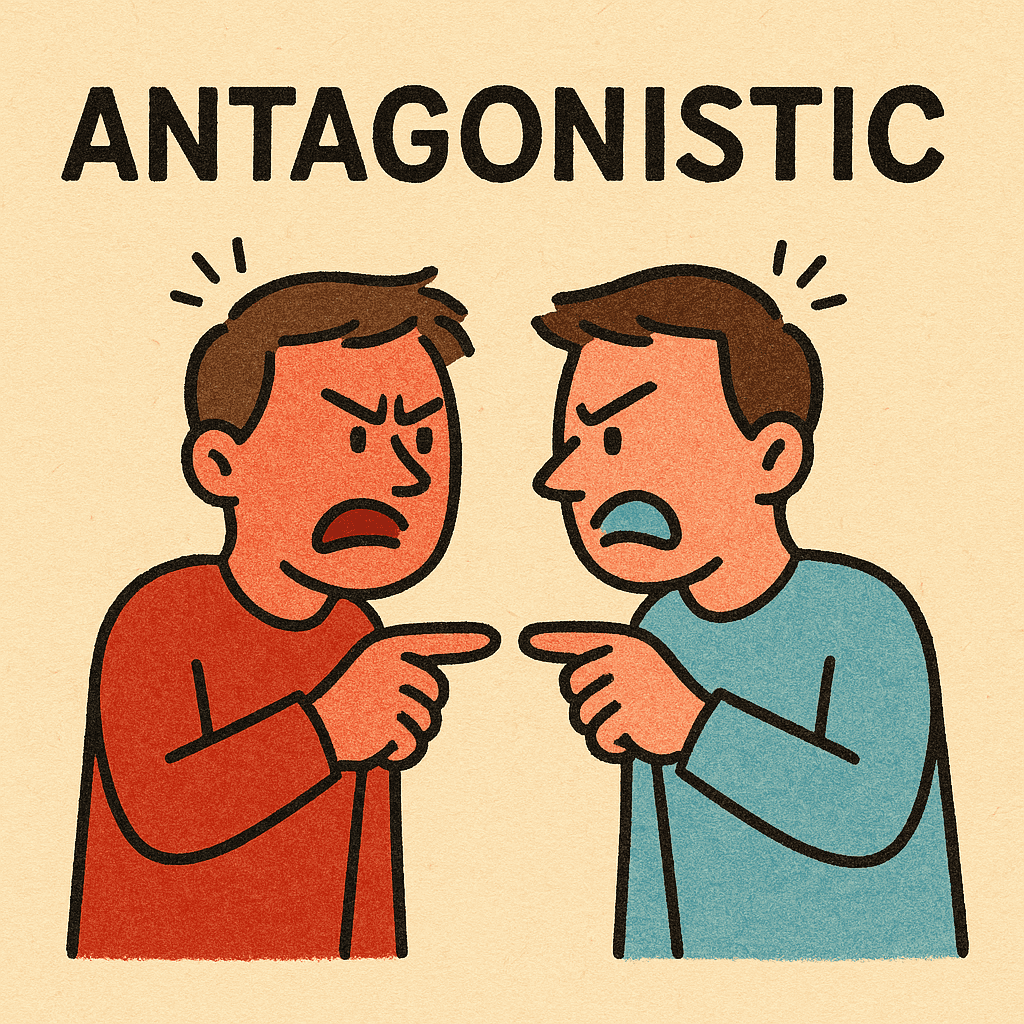Meaning
“Antagonistic” is an adjective that describes a hostile, unfriendly, or opposing attitude. It often refers to people, actions, or behaviors that create conflict or resistance.
Grammar and Usage
-
Part of speech: Adjective
-
Used to describe a person’s attitude, relationship, or response.
-
Typical structures:
- antagonistic toward someone
- an antagonistic relationship
- feel antagonistic about something
Common Phrases
- antagonistic attitude → hostile or unfriendly attitude
- antagonistic relationship → a relationship full of conflict or opposition
- antagonistic response → a reaction showing hostility or resistance
- antagonistic forces → opposing or conflicting powers
Collocations
- Noun + antagonistic: antagonistic behavior, antagonistic forces, antagonistic reaction
- Verb + antagonistic: become antagonistic, act antagonistic
- Adverb + antagonistic: openly antagonistic, highly antagonistic, deeply antagonistic
Examples
- The two politicians have an antagonistic relationship.
- She was openly antagonistic toward her new boss.
- His antagonistic behavior created tension in the office.
- The two nations remained antagonistic despite peace talks.
- The students gave an antagonistic response to the new rules.
- The movie depicts the struggle between antagonistic forces.
- He became antagonistic whenever anyone challenged his ideas.
- Their antagonistic attitudes made cooperation impossible.
Synonyms or Related
- Synonyms: hostile, unfriendly, opposed, combative, adversarial
- Related: conflicting, resistant, aggressive
